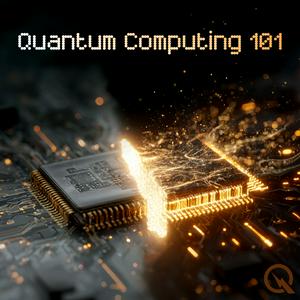This is your Quantum Computing 101 podcast.
Imagine this: just days ago, on February 20th, researchers at the University of Copenhagen unveiled a real-time qubit tracker using FPGA hardware from Quantum Machines' OPX1000, catching superconducting qubits flipping from pristine to problematic in mere milliseconds—like a quantum cardiogram spotting heart flutters before they crash the system. I'm Leo, your Learning Enhanced Operator, and welcome to Quantum Computing 101. Today, we're diving into the hottest hybrid quantum-classical breakthrough: Pasqal's push at SC26 for seamless integration into HPC workflows, blending quantum acceleration with classical muscle for optimization, simulation, and AI.
Picture me in the humming cryostat lab at Barcelona's multimodal quantum data center, where Pasqal partnered with Oxigen last November. The air chills to your bones, coaxial cables snake like frozen pythons from room-temp racks to millikelvin qubits, and neutral atoms dance in optical lattices—thousands strong, defying gravity in laser traps. This is hybrid heaven: classical HPC crunches vast datasets at blistering speeds, while Pasqal's processors inject quantum magic, solving intractable problems like molecular simulations or traffic flows that classics alone choke on.
Here's the genius: hybrids marry quantum's **superposition**—where qubits explore infinite paths simultaneously, like a million chess grandmasters pondering every move at once—with classical determinism. Take Comcast's recent collab with Infleqtion and Classiq: their variational Qubit-Efficient MaxCut algorithm slashed qubit needs from linear to logarithmic, optimizing massive networks with just 5 qubits on real hardware for 32-node graphs. Quantum proposes wild guesses via variational circuits; classical evaluators score them, iterating like a cosmic Darwinian dance. No more qubit famines—error rates plummet 800x, as in Quantinuum's H2 processor hitting Microsoft's Level 2 resilience.
Feel the drama? Qubits entangle in superposition's embrace, probabilities rippling like storm-tossed waves on a quantum sea. Yet noise lurks, decohering them faster than a soap bubble pops. Enter Copenhagen's FPGA sentinel: it Bayesian-updates qubit decay rates post every pulse, 100x faster than old methods, pinpointing bad actors in seconds. Paired with hybrids like Agnostiq's Covalent orchestrating quantum-GPU flows, or ÉTS Montréal's QUALITY project weaving QKD channels into telecom fibers at 800 Gb/s, we're forging unhackable networks resilient to quantum threats.
This isn't sci-fi; it's the pivot. Hybrids leverage classical scalability now, quantum edge tomorrow—think drug discovery at UVic or IBM's Qiskit on Willow's 99.97% fidelity gates. The arc bends toward fault-tolerance, where Google's February error-threshold flip ignited the race.
Thanks for tuning in, listeners. Questions or topic ideas? Email
[email protected]. Subscribe to Quantum Computing 101, and this has been a Quiet Please Production—for more, check quietplease.ai. Stay quantum-curious.
(Word count: 428; Character count: 3387)
For more http://www.quietplease.ai
Get the best deals https://amzn.to/3ODvOta
This content was created in partnership and with the help of Artificial Intelligence AI


